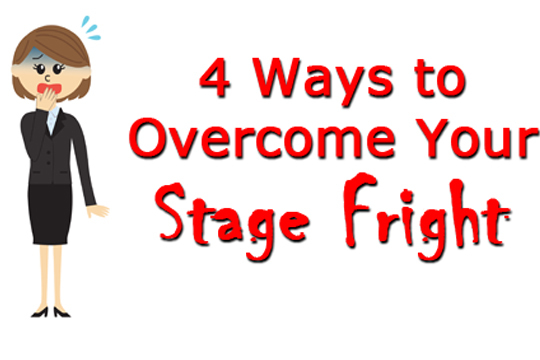Helene Lerner's Blog, page 2
September 9, 2016
4 Ways to Stand up to Someone Who Puts You Down
“How did I do?” you asked Stan.
Stan shook his head and said, “Maybe others understood what you were saying. You seemed a bit unfocused.”
Your heart sank. You’d sweated buckets over your presentation. Now you felt like kicking yourself for asking Stan for feedback. You share an office with Stan and your first memory of him was when he said, “You must have enjoyed your vacation last month. Those pants look a bit tight. My wife always eats a bit too much on vacations.” At the time, you chalked it up to Stan trying to make conversation. You soon learned he loved putting others down, especially you.
We all know a snarky Stan, who whittles away at our self-esteem. If you want to undo a put-down artist’s damage, use these strategies.
Acknowledge your feelings
It hurts when another diminishes you, what you’ve done or who you are. Belittling comments drain your confidence and trigger shame, anger and other negative emotions. Allow yourself to feel what you feel, as brushed off or shoved down emotions cling and fester.
Realize your part
Those who sling vicious remarks do so to make you feel smaller so they can feel bigger. What they say isn’t truth and you needn’t take it personally. You do, however, need to stop appearing to be an easy target. If you’re the butt of repeated slams, ask yourself “what do I need to do differently?”
Take charge
Eleanor Roosevelt spoke truth when she said, “No one can make you feel inferior without your consent.” Never let a put-down artist’s mind games change how you feel about yourself or drain you of confidence. Their disrespect reveals who they are, not who you are.
Decide and act
Don’t fall into the “just brush it off” trap. If you ignore, accept or smooth things over after an insult, you let the put down artist feel he’s gotten away with it.
No one has the right to use you for target practice. Your self-esteem is on the line; you can’t ignore another’s nasty remarks and carry on as if they weren’t said.
What does it take? Realize that you deserve respect and may need to train others how they can and can’t treat you. Don’t smolder or roll over and take it, speak your mind. Forcibly cast a nasty slam dunk aside. A firm “that’s unacceptable” or “I won’t tolerate you speaking to me that way” shows you have the self-confidence and backbone needed to stand up for yourself, if and as needed.
- Lynne Curry
Easy Tips to Help You Sleep Through the Night
Dr. Mike Corradino is a clinical director and co-founder at Palomar Health Center for Integrative Medicine and Wellness. After completing his Doctorate degree and opening a new clinic, Dr. Corradino is no stranger to stress. If stress keeps you up at night, or you just have a hard time falling asleep in general, his tips might just do the trick.
Here are some simple steps to help you fall asleep:
Block out the light
Our eyes and nervous systems have been adapting to the natural rhythm of light and darkness throughout our environment since human beings have been on the planet. But with recent advances, (air conditioning, artificial lighting, etc,) using a light at night can stimulate the optic nerve, which stimulates the penal gland, which stops the release of melatonin. It believes it's daytime. Sleeping in complete darkness tells the brain that it's nighttime. Be mindful of little lights, such as bright alarm clocks and bathroom lights, as this can certainly affect the melatonin released in the brain.
Out of sight, out of mind
Keep any electronics at least 3 feet away. Electromagnetic fields can also disturb the penal gland and interrupt the release of melatonin. This can be an alarm clock, smart phone, or other electrical device that sits on your nightstand.
Avoid alarming alarms
One thing people sometimes forget to think about is how they wake up. Disturbing alarm sounds can actually develop anxiety—the heart will start palpitating before the alarm even goes off. It's going to disturb the mind and wake us up. Use alarm sounds that gradually increase from a low volume to a louder one, for example. I use my Fit Bit, which gives me a gentle wake up.
Reserve the bed for sleep and intimacy
You don't want your brain to think that bed time can also mean writing emails or watching television. You want your brain to just train itself to go to sleep. Most sleep doctors will say to lay down, and if you're not sleeping within 20 minutes, get out of bed, walk to a different room, and then do whatever you need to do to get yourself tired.
Be mindful of caffeine
Caffeine has approximately a 6 hour half-life. So if you're getting out of work, let's say at 6:00, and you have a caffeinated drink with dinner, half of the caffeine will be circulating through your system at midnight. Those under high stress may be more sensitive to caffeine, so if this is you, try to cut back after 3:00pm.
Establish a bed routine
I suggest going to the bathroom before bed, laying out your attire for the next day, and planning out the tasks you'd like to accomplish. If you have everything sorted before bed, your mind will be able to focus on sleep at night, not the things you have to do tomorrow.
Body, breath, mind
First, regulate your body by finding a comfortable position. Next, trick your brain by breathing as your body does while sleeping. If you inhale short and exhale longer, you'll drift into a relaxed state of mind.
Simplicity is key
I use lavender aroma therapy myself. I put a little on my wrist and below my nostrils—it's a great remedy to help. Chamomile or sleepy-time tea, as well as L-theanine, have evidence in their effectiveness.
Some of these tips may work for some, but not for others. Feel it out and see what works for you. I used these tips when I was having difficulty sleeping and found that they made a big difference in my sleep patterns. Keep in mind that medical advice and changes should be discussed with a physician.
September 8, 2016
5 Common Disappointments and What to Do About Them
I didn’t get that job. There’s a lot to learn from a job you didn’t get. Can you call back for feedback on why you weren’t chosen? Can you improve from what you learned? Was this job really the right fit for you? Can you benefit by some further training and development? Keep growing beyond the disappointment by making the most of what you learned from the experience. When one door closes, another opens.
The person I counted on didn’t come through for me. Don’t allow situations to rule your life, and this includes others that don’t come through when you counted on them. Instead, accept others as they are, and take full responsibility for your feelings. Ask yourself, did I do my part by being clear with the other person about what I wanted and expected? What do I really need and what else can I do to achieve it?
I’m feeling too depressed. Focusing on the needs of others, while creating what you need for your own situation can raise your energy and spirits. You can volunteer for a worthy non-profit, listen to and help a friend, or foster a rescue animal. These take the focus off you and help someone else. When serving, you have "deserving" to consider, so your efforts help others by paying your good intentions forward. Depression is also a serious biological affliction. If you are depressed, seek help from a psychologist or psychiatrist.
I screwed up on that project. When you’ve owned your part, be certain to talk with others who need to know. Be certain to apologize. There are customers of the project who will understand, support you with feedback, and give you another chance.Accept the new day as a fresh opportunity. What can you learn from what happened and what will you do differently the next time?
I can’t get over this setback. Keep your attention on the present by letting each passing day stay in the past. Make today be your day of unfolding hope, faith, gratitude and love. Don't let the circumstance of life throw you off your plans, such as your career goals or connections to family and friends. Love unconditionally, while setting goals for yourself to go beyond this setback.
Andrea Zintz, President, Strategic Leadership Resources (SLR)
www.strategicleadershipresources.com
September 7, 2016
2 Ways to Raise Low Self-Esteem
Your professional presence is something you project to others at work, with friends and in every environment where people evaluate you. It’s important to be aware of your self-concept and how it works for or against your goals and ambitions.
Have you ever noticed…
How many times you apologize to others? Sometimes we think we are being considerate and polite, but we don’t realize how much it can influence our professional presence in a negative way.
Times you are self-deprecating with remarks like: "I always lose things" (with a nervous laugh), or “I used to be good at that, but I'm so out of practice" (with a roll of your eyes), or “I can never remember others’ names – I’m really bad at that.” It can backfire by appearing to others as low confidence or low self-esteem.
Raising your self-esteem is an “inside job.” Here are two ways to improve your professional presence and raise your self-esteem:
1. Develop self-awareness: Cultivate a clear sense of yourself and your worth when you fully own your talents, skills and knowledge. Notice times when you apologize and how often you say deprecating things about yourself to others.
2. Shut down that annoying noisy voice inside you that says you're not OK: We all experience that nagging self-talk that says, "you screwed up." "You don't deserve this attention." "What makes you think you can do this?" And so forth. Notice that voice when it starts up, and tell it to "shut up." Don't even argue with it. Use positive and affirming self-talk. A hint from neuroscience is to talk to yourself in the third person. Say, using your own name, of course: "You can crush this, Andrea!" "Andrea, get prepared for this and you'll be great."
Now you are ready for the “outside job.” Make sure when you speak with others; you relate your knowledge and experience with pride. Don’t worry that you are being too confident or arrogant. Stay self-aware, but not self-absorbed. Act through the confidence that you are unique, smart, and capable. This engages others from a place of both humility and confidence, rather than from low self-esteem.
Andrea Zintz, President, Strategic Leadership Resources (SLR)
www.strategicleadershipresources.com
September 6, 2016
How to Turn Around Negative Thinking
Have you ever caught yourself saying things like:
I had to take that job. It was my only choice.She hurt my feelings.There was nothing I could do about it.
We all tell stories about what happened and then, in the way we relate it to others – or ourselves - we make it real. Our personal history is created in our story telling. This is why it's helpful for you to become skilled at storytelling - not only for better communication but to turn around your negative thinking and empower yourself.
Here are 3 steps to building an empowering story for your life. Take a situation from your experience that was painful to you and notice how you tell it.
1. What happened? What role did you play, and how did you see the situation, how did you feel, and what was the challenge or goal?
2. Examine the story as if this was a good friend – not you. What did the main character (you) learn from the experience? As the main character, make yourself the one who is strong and makes choices. Describe how it brought insights, lessons or helped your make different choices. Your story can both reflect and shape who you are. It says what happened, why it is important, what it means for who you are and who you'll become. This builds your self-concept.
3. Re-tell the story a new way. Try revising your interpretation in a way that enables you to adapt better to challenges and circumstances. This is where the story can be most empowering for you. How might you change the story so it supports your desired goals?
You don't have to keep your stories to yourself. You might choose to share one with a supportive friend who might give you another perspective. The listener may help you realize that this thing you thought was really bad is actually not a big deal. You may get a richer and fuller memory of what happened, and this can shift your self-concept in a positive direction.
Andrea Zintz, President, Strategic Leadership Resources (SLR)
www.strategicleadershipresources.com
September 1, 2016
4 Ways to Overcome Your Stage Fright

I used to have a story about myself that when I spoke in front of people, I would go blank. It occurred pretty often - I would feel prepared, but the minute I was standing and eyes were on me, my knees would start to shake and my brain shut down.
Through practice and the following steps, I successfully overcame my stage fright and now enjoy speaking to groups of people of any size, and project my enjoyment to my audience as I present with enthusiasm.
1. Imagine you are having a conversation with one person. Now make it include the other people by shifting your connection to one at a time.
2. Be certain to practice to integrate the information you are sharing until you feel you own the material and feel comfortable relaying it on your feet. It can help to write it out and then stand in front of a mirror. So when you deliver the real thing, it's a conversation vs. a presentation. You can also speak with a small group and get some feedback. Being relaxed and yourself is the goal. This comes across to an audience as authentic and engaging.
3. Before you speak, stretch. Also, take big breaths and shake your arms and legs. Studies show that this makes a huge difference in reducing nervous energy.
4. Speak with yourself in the third person using encouragement and appreciation. Only say positive things that your brain can take in easily. No "don'ts!" - only positive, soothing words such as, "relax, you know what you are doing and you know your subject." "You'll do great!"
My new story is how motivated I feel to share my subject and point of view. This is an engaging conversation that has meaningful value for you and projects confidence to others.
Andrea Zintz, President, Strategic Leadership Resources (SLR)
www.strategicleadershipresources.com
August 29, 2016
Things Not to Say to your Female Colleagues

As powerful women, respectful and mindful of our female colleagues, there are some subjects that should be no-gos for comments in the workplace. If you have nothing to say to your co-worker who happens to be a woman, just talk about the weather. But steer clear of the old traps and stereotypes. Here’s how.
Avoid terms of endearment
Don’t call her honey, sweetie, or girlie. She’s a professional in the workplace just like you and these comments are considered degrading or sexual, no matter how good your intentions are.
Avoid gender comparisons
Don’t use gender to make comparisons or evaluate work. For example, “great job speaking up, especially as a woman.” Adding that type of qualifier detracts from the compliment.
Avoid mood-related stereotypes
If you were having a heated disagreement with a male colleague, you would never bring up his hormonal status, would you? The passion would not be misconstrued as “emotions.” Offer your female colleague the same respect.
Don’t presume family commitment
There is an unspoken belief that women can’t put in the same hours once she has had children. But don’t presume your female colleague isn’t looking for a promotion now that she has kids. Don’t question if she plans to keep working at all. You would not ask a father those questions, and the same rules apply for a mother. If she makes the choice to stay at home, she will share that when she is ready.
Don’t tell her to be more aggressive
Telling your female colleague she needs to be aggressive in order to be effective, or to adopt other similar more “manly” strategies may be misguided. The reality is that a variety of communication styles are effective and welcome in the workplace and create a balanced culture.
Avoid physical comments
You don’t need to comment on weight or looks. If you wouldn’t make small talk about a guy’s shirt or body weight, there’s no reason to objectify her either.
There are so many subtle ways women continue to be treated differently in the workplace and kept in a box with which we are all comfortable. As women, let’s support and lift up our female colleagues with respect, dignity, and power.
Leena Roy, CFA/CPC is a Leadership & Life Coach. Choice over Chance is designed to elevate and empower Mid-level Managers & all Professionals to achieve their highest potential. Please join me on FB: Choice over Chance or follow me @CoachLeena today.
August 25, 2016
Is this Job Still Right For Me

Let’s be real, when we are unhappy at work we can’t help but wonder about greener pastures. We daydream about telling our boss that we are OUT of here, and how sweet that is going to feel. Reading through job descriptions online, you start to get excited about all the shiny, new possibilities out there! Work that seems so much more interesting and fulfilling is just a few interviews away. However, quitting is a big decision and should be well-thought-out. Before you stride out into the sunset, let’s make sure you can answer the following questions!
What will you do next for money?
Regardless of the frustration we feel, money is a very real factor to consider when we decide to quit our jobs. If you have a new, better-paid job lined up, that’s the best-case scenario we all want. But if not, consider if you might be forced to take a pay cut to escape the current situation. And if you’re starting your own thing, it’s time to be realistic. Are you mentally and financially prepared to support yourself? In short, can you afford to quit your job or are you better off where you are?
Can you work things out?
Is the situation truly impossible or can you work things out? Sometimes, we are overwhelmed at work or feel undervalued and that we’ve reached our limits. It may not seem like it initially, but with some reflection you might find ways to work things out - perhaps by communicating your concerns, or switching your role or manager if those are options.
Are you next in line?
You’ve been with the same team for over 10 years, it’s starting to feel stale and too comfortable. While it may be time to start looking elsewhere, you may also be very close to moving into a leadership position in your current team. Sometimes we leave just before a big promotion that’s due. If you’re close, it may be worth just hanging in a little bit longer!
Do you just need a vacation?
Are you overworked and burnt out from the stress? Sometimes we need a mental break from major projects or even the tensions around a major transition at the workplace. It’s tough to break away at these junctures but even a day or two off can go a long way to refresh the mind and spirit!
Do you like almost everything?
You are thrilled with the work you do, the benefits and flexibility of the role, and it even pays well. There is just one thing: our manager doesn’t seem impressed by what you have to offer and you feel constantly micromanaged, like you don’t think you’ll last long-term. Truth is, anywhere you go, you will have challenges to encounter. If almost everything works, then you may want to think twice before quitting.
What’s your long-term career goal?
You’re not sure what the next step is in your career and you feel your back against the wall. The best option seems to be to quit! But before you jump the gun, do you know what you really want to do instead? If there are benefits to staying, it might be worth hanging on while you figure out what your next step should be with a cool head and no money worries!
So before you plunge down the path of the Big Q, spend some time reflecting and making sure you really understand why, what’s involved and what’s next for you.
Leena Roy, CFA/CPC is a Leadership & Life Coach. Choice over Chance is designed to elevate and empower Mid-level Managers & all Professionals to achieve their highest potential. Please join me on FB: Choice over Chance or follow me @CoachLeena today.
August 22, 2016
5 Ways to Get Back on Track When You Feel Lost

Feeling lost in the wilderness of life with so many decisions ahead? Here are some natural resources we all have!
Find your Map
It helps to ground us when we remember where we started. It may be time to internally retrace your steps to find out where you should go next. From a career perspective, it may be remembering what you studied in college and what you loved about in the first place that got you where you are now. Have you strayed from that course? Now that you remember what you wanted in the first place, it’s easier to figure out how to get back on track.
Look up at the Sky
We have a natural compass. Just like looking up at the stars and sun can help us find our bearings, similarly we can look up to our vision and up at our future goals to get back our perspective. We are guided by our values, our mission in life and the legacy we would like to leave behind.
Turn on the Torch
In the darkness, remember you can turn on a light. And the light can be in the form of your life advisor, a boss, a mentor, sponsor, or coach. They can shine the torch on your path forward by reminding you of who you are and what you’re great at. Sometimes all we need is a new perspective.
Reach for Comfort
Out in the cold, we may need the warmth of love to fill us. Our families are our cheerleaders and support systems. You may need to reach out if it’s been a while but true friends, close family, or loved ones tend to be no more than a phone call or email or visit away.
Refuel
When we lose momentum, it’s time to refuel our souls and bodies. Whether it’s the feel-good exercise hormones, comforting music, healthy food, positive mantras, or inspiring readings – when you’re losing momentum and feeling lost, take time to energize and charge up those life batteries.
Don’t forget to use your inner resources when you start losing direction and purpose, you’re the best map for yourself!
Leena Roy, CFA/CPC is a Leadership & Life Coach. Choice over Chance is designed to elevate and empower Mid-level Managers & all Professionals to achieve their highest potential. Please join me on FB: Choice over Chance or follow me @CoachLeena today.
August 17, 2016
How Confident Women Know it is Time to Trust their Gut about People

When the confident woman’s brain is overloaded with facts and data but a decision seems to be getting any clearer it may be time trust her gut instincts!
Adding to the team
Hiring decisions between two equal candidates can often come down to a final “feeling” of who will be the best fit for the organization and team. The confident woman can trust her gut instinct beyond the first impression and the work experience. This instinct can speak more volumes than all the words on a resume.
During transition periods
At work or personally, sometimes without anyone saying it in so many words, you can get wind of an unspoken change ahead. It can be the way people won’t make eye contact or your senior VP is no longer responding to messages. There can be a shift in energy that is only sensed by your intuitive gut. The confident woman can trust that instinct and be extra prepared for what’s to come.
In a conflict or challenge
In periods of conflict or being challenged in the workplace, the confident woman will have to quickly assess who is on her side and who she can look to stand up for the right thing. Her female instinct is key to helping her make that decision. Sticking to her guns and enrolling the right people on to her team allows her to face her challenges with grace.
Making work allies
One of the important relationships at work can be your peer network. While it is always necessary to build your network, the confident woman will be discerning in who she picks to be in her inner circle. A group of people who have her back and can be trusted to stick up for her when she is not in the room. The inner circle becomes her support and contingency plan!
When do you trust your gut instinct? Look forward to seeing your comments!
Leena Roy, CFA/CPC is a Leadership & Life Coach. Choice over Chance is designed to elevate and empower Mid-level Managers & all Professionals to achieve their highest potential. Please join me on FB: Choice over Chance or follow me @CoachLeena today.
Helene Lerner's Blog
- Helene Lerner's profile
- 9 followers



